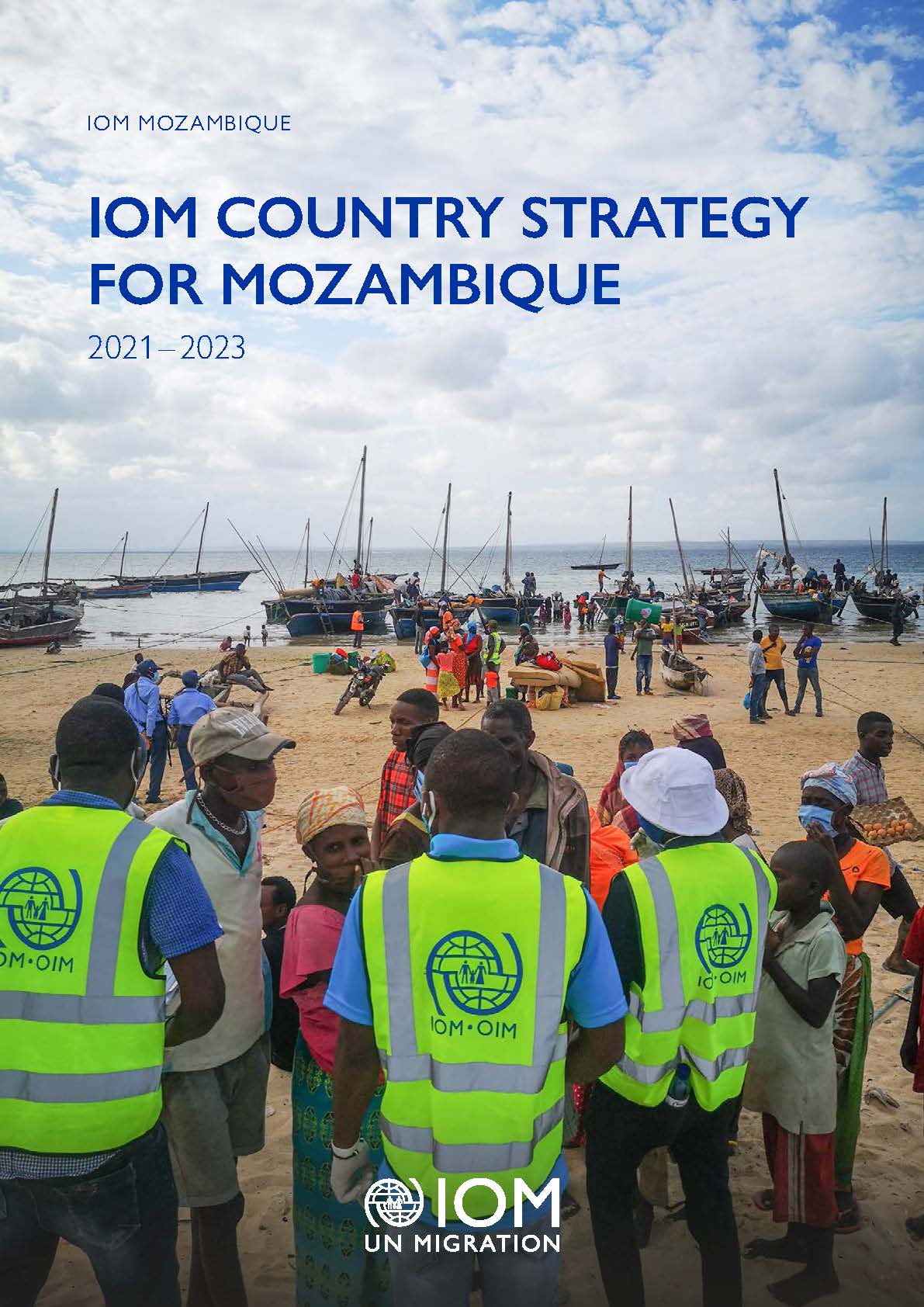-
Who We Are
WHO WE AREThe International Organization for Migration (IOM) is part of the United Nations System as the leading inter-governmental organization promoting since 1951 humane and orderly migration for the benefit of all, with 175 member states and a presence in over 100 countries. IOM has had a presence in Mozambique since 1994.
About
About
IOM Global
IOM Global
-
Our Work
Our WorkAs the leading inter-governmental organization promoting since 1951 humane and orderly migration, IOM plays a key role to support the achievement of the 2030 Agenda through different areas of intervention that connect both humanitarian assistance and sustainable development.
Cross-cutting (Global)
Cross-cutting (Global)
- Data and Resources
- Take Action
- 2030 Agenda
IOM in Mozambique
Mozambique has been a Member State of IOM since 2011 and was accredited in 2005. IOM Mozambique operates from its main office in Maputo as well as its sub-offices in Beira and Pemba and field offices in Nampula city. As of November 2022, active IOM programming includes Migration Health, Migrant Protection and Assistance, Peacebuilding and Community Resilience, Immigration and Border Management, Migration Research and multi-sectoral emergency and recovery programming (Camp Coordination and Camp Management, Mental Health and Psychosocial Support, Protection, Shelter/NFI, Displacement Tracking Matrix, WASH and Health in Emergencies) related to natural disasters, such as cyclone Gombe, as well as the displacement in northern Mozambique due to the situation of insecurity in Cabo Delgado province. IOM is closely working with the Government of Mozambique and has been providing technical support and assistance to the Government since 1994.
IOM Mozambique operates from its head office in Maputo as well as the sub-offices in Beira and Pemba. It also has a number of field offices across the northern Provinces, including in Nampula City (Nampula Province). IOM has a significant operational footprint, with over 600 staff across the country as well as ongoing programming in all Provinces in Mozambique. In 2021, 887,862 people directly participated in IOM programs and activities and 1,283,118 people benefitted from IOM’s support indirectly.
Mission
Well-managed migration is a catalyst for Mozambique’s sustainable development that benefits migrants, communities and society alike.
Vision
IOM is the Government of Mozambique’s key partner in continuously improving migration management and governance and safeguarding the dignity and protection of migrants and migration-affected communities.
 IOM Country Strategy for Mozambique 2021 – 2023
IOM Country Strategy for Mozambique 2021 – 2023
IOM Mozambique has been working on series of programmes to promote migration as a driver of development, to build resilience and promote recovery in communities affected or at risk of disasters and to respond to increased insecurity in the northern region. IOM works closely with the Government of Mozambique, the UN Country Team, Civil Society, Academia and Communities.
The three priorities for IOM in Mozambique between 2021 - 2023 are:
- Migration Governance.
- Promoting Resilience and Durable Solutions.
- Humanitarian Preparedness and Response.
IOM HDPN Roadmap for Northern Mozambique 2022-2026: Overview for 2023
IOM has been working in Mozambique across the humanitarian, development and peace nexus (HDPN), also referred to as the Triple Nexus. By Following an HDPN approach, IOM seeks to reach sustainable solutions striving to contribute to the achievement of the Sustainable Development Goals while implementing the Global Compact on Safe, Orderly and Regular Migration (GCM). IOM developed a Triple Nexus Roadmap (2022-2026) that provides an overview of IOM understanding of the situation in northern Mozambique and highlights the programmatic priorities and funding requirements per year. The strategic outcomes of the roadmap are:
- Displacement-affected populations have their basic, life-saving needs met and have dignified living conditions.
- Drivers of violence and conflict, and related displacement effects, are sustainably addressed.
- The government has increased capacity to provide inclusive and quality services to displacement-affected communities, putting IDPs on a pathway to sustainable solutions to displacement.
- Humanitarian, peace and development actors use disaggregated data to inform evidence-based programming.
- Displacement-affected populations have increased Protection from Sexual Exploitation and Abuse (PSEA).